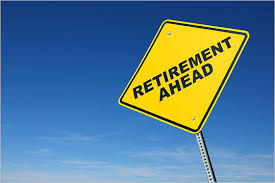记忆方法
1. 阿姨累了。
2. 阿姨如果累了,工作干厌倦了就退休不干了。
2. 阿姨如果累了,工作干厌倦了就退休不干了。
中文词源
retire 撤离,退休
re-,向后,往回,-tir,拉,词源同 tirade,tier.即向后拉,引申词义撤退,撤离,后用于指退休。
英语词源
- retire (v.)
- 1530s, of armies, "to retreat," from Middle French retirer "to withdraw (something)," from re- "back" (see re-) + Old French tirer "to draw" (see tirade). Related: Retired; retiring.
Meaning "to withdraw" to some place, especially for the sake of privacy, is recorded from 1530s; sense of "leave an occupation" first attested 1640s (implied in retirement). Meaning "to leave company and go to bed" is from 1660s. Transitive sense is from 1540s, originally "withdraw, lead back" (troops, etc.); meaning "to remove from active service" is from 1680s. Baseball sense of "to put out" is recorded from 1874.
权威例句
- 1. If they prove ineffective they should be demoted or asked to retire.
- 如果事实证明他们已无力胜任,应该将他们降级或让他们退休。
- 2. The jury will retire to consider its verdict today.
- 陪审团今天将退庭商议裁决结果。
- 3. It would be nice to be able to afford to retire earlier.
- 无后顾之忧而能提早退休当是件幸事。
- 4. The two leaders will retire to Camp David for informal discussions.
- 两位领导人将到戴维营进行非正式讨论。
- 5. It's close to showtime now, so you retire into the dressing room.
- 开演时间快到了,你得进化装间了。

